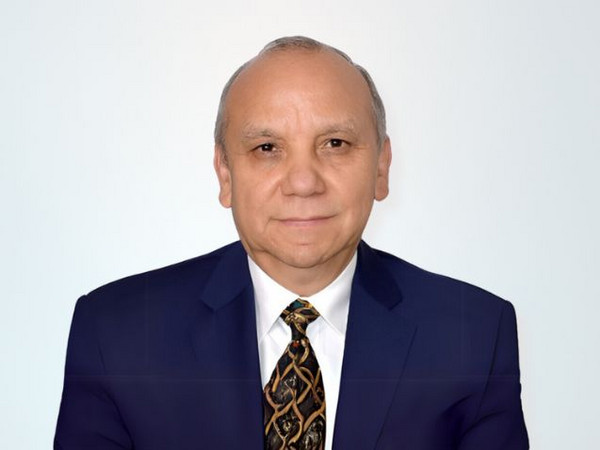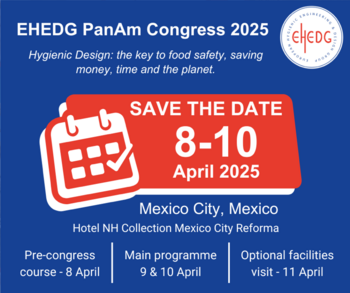Enhancing Food Safety: An Interview with Marco Antonio León Félix on Hygienic Design and Sustainability

“Our main objective is to show that hygienic design isn't just about equipment; it's about how you manage the system to achieve sustainability, food safety, and productivity. It is about food safety culture.”
We had the pleasure of meeting Marco Antonio León at the EHEDG World Congress, where he graciously took a few minutes to discuss the significant contributions of EHEDG to the food industry. In this interview, Marco León shares his insights on the critical relationship between food safety culture and hygienic design, the strategies employed to achieve these goals, and his impressions of the EHEDG World Congress 2024.
What was the biggest contribution this conference made to your region?
Well, we are aligned with them, so we talk about food safety, food quality, sustainability. And today we are very aware of the relationship between hygienic design and what the Codex Alimentarius says about food safety culture.[1]
In Latin America, it's very clear that if you don't have a food safety culture, you can't implement hygienic design. So we're trying to get indicators of food safety culture, both based on hygienic design, because we've seen that food safety culture is most measured by people. I mean how people's behavior has changed to be more aware of food safety.
Could you elaborate on the strategies you use to achieve these goals?
You must go into the real world and see if they are applying the principles of hygienic design and if they are doing assessments. So that's a key point.
There has to be a direct relationship between food safety culture and hygienic design. That's one of our main objectives that we're dealing with. So we want to be clearer. We want to be with the companies and say, hygienic design, it's not just about buying hygienic design equipment or having the best equipment. No, it also depends on how you manage the system and how you give results to the company in terms of the benefits of hygienic design, which are sustainability, food safety, food productivity, and a footnote about the productivity of the plant. When these metrics are presented to the company's management, they recognize the value, noting that beyond preventing a food recall, there are significant cost savings and resource conservation, thereby contributing positively to the planet. That's our role.
What is your biggest impression of this EHEDG World Congress 2024?
Well, I think that we're talking about these issues and it's been noticed in the conferences and if you go through all the suppliers that are here, it's also clear that they're committed to the planet, to food, to sustainability, to saving water, saving chemicals and the other factors. I realized that we are on the same frequency.
Let's say, whether you're making drains or they're making pumps, the common denominator is vulnerability, what are you doing to help reduce pollution and CO2 footprint, save water and so on. So I think that's very important.
[1]Food safety culture refers to the shared values, beliefs, and behaviors within an organization or community that prioritize and promote the importance of food safety.
Marco Antonio León Félix
Marco has a bachelors degree in food science and technology by UNAM, Mexico, a Freezing Technology specializing in Italy, ICI, and a Quality Systems diplomate in Mexico, VISA Group. He has been consultant, trainer and auditor for Food Safety Systems in Mexico and Latin America for more than 250 Food Enterprises since 1992. Nowadays he is director at LEFIX y Asociados and he is in charge of the Food Safety Evaluations for GFSI schemes (FSSC 22000 and BRC), FSMA, Food Safety Standards in Mexico and Food Safety requirements for exports to USA and UE. He is professor for Food Technology and Food Safety at UNAM, Mexico since 1983. He is member of the Administration council and founder partner of SOMEICCA A.C. (Mexican Society for Food Safety and Food Quality for Food Consumers, Civil Association). He joined EHEDG in 2010 and he has been working and promoting hygienic design in the food chain in the USA, Mexico, Canada and Latin America. He is involved in several projects related to hygienic design topics with canned foods, powders and seafood. He started a cleaning evaluation project for food equipments at UNAM. He is responsible for the Mexican Regional Section of EHEDG. Marco is a HACCP and GMP´s expert (International HACCP Alliance Trainer) and Thermal Process Authority as well as Freezing Technology and cold chain consultant.
